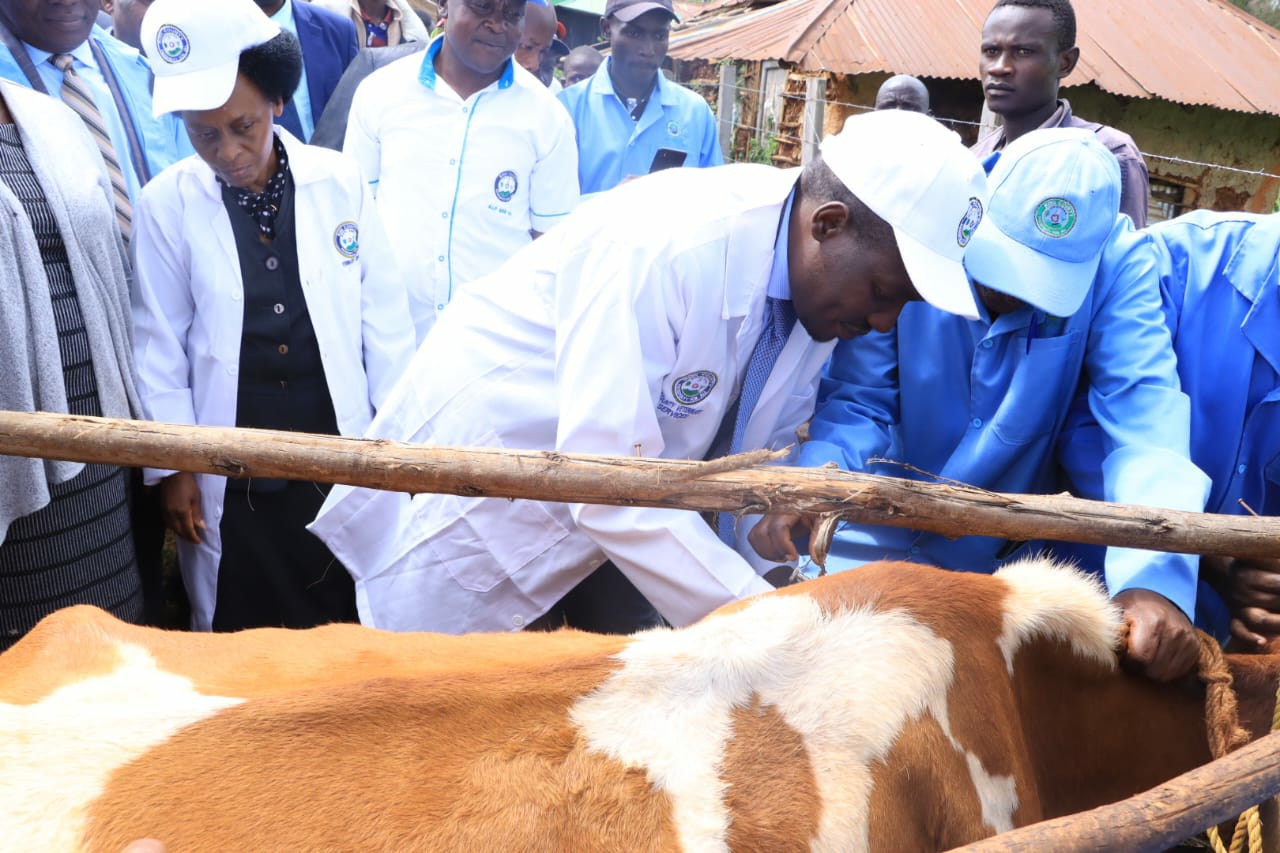Kisii county government has rolled out the annual County Livestock Vaccination Programme as part of the county’s efforts to support farmers in improving the health of their livestock to boost production.
The vaccination against anthrax, rabies, lumpy skin disease, foot and mouth disease, and Rift Valley fever among others will be carried out in all the constituencies in the county, except for Bobasi and Bonchari where the exercise had been conducted following a recent outbreak.
The programme is targeting over 146,998 cattle, 53,121 sheep, and over 15,000 dogs in the seven sub-counties with the vaccination.
Speaking during the launch in Kitutu Chache North Constituency, Kisii Governor Simba Arati said the exercise aimed at increasing productivity in the livestock sector through the prevention of diseases since healthy livestock results in increased and sustained production.
Arati urged the residents to cooperate with the veterinary officers who will be traversing the villages to vaccinate their animals saying that the programme would ease the economic losses associated with diseases.
The County Boss pointed out that the annual vaccination protects the public from Zoonotic diseases that could cross over from animals to humans and vice-versa, such as anthrax and rabies.
“Dog-mediated rabies is the most commonly reported disease due to dog bites from rabid or infected dogs. Vaccinating the entire dog population is an efficient way of stopping the transmission cycle of deadly rabies,” he said.
Kisii County Executive Committee (CEC) Member for Agriculture Dr. Margret Obaga noted that rabies is a viral disease that targets the nervous system causing paralysis and death.
Dr. Obaga said the disease has a 100 percent mortality rate and could be transmitted through contact with the saliva of infected animals primarily through dog bites from infected dogs.
On her part, the County’s Chief Officer in charge of Livestock and Veterinary Services Agnes Choti pointed out that rabies had become common among cattle in the county and said symptoms are cattle that cannot feed and later on, get paralyzed.
Ms. Choti encouraged the residents to report cases of sudden death among cattle, sheep and goats to the nearest veterinary offices and avoid coming into contact with or feeding on such carcasses since anthrax affects both humans and animals and could be fatal.
“Sudden death with or without blood oozing from body openings should be suspected of having died from anthrax until proven otherwise by a Veterinary officer,” she said.

